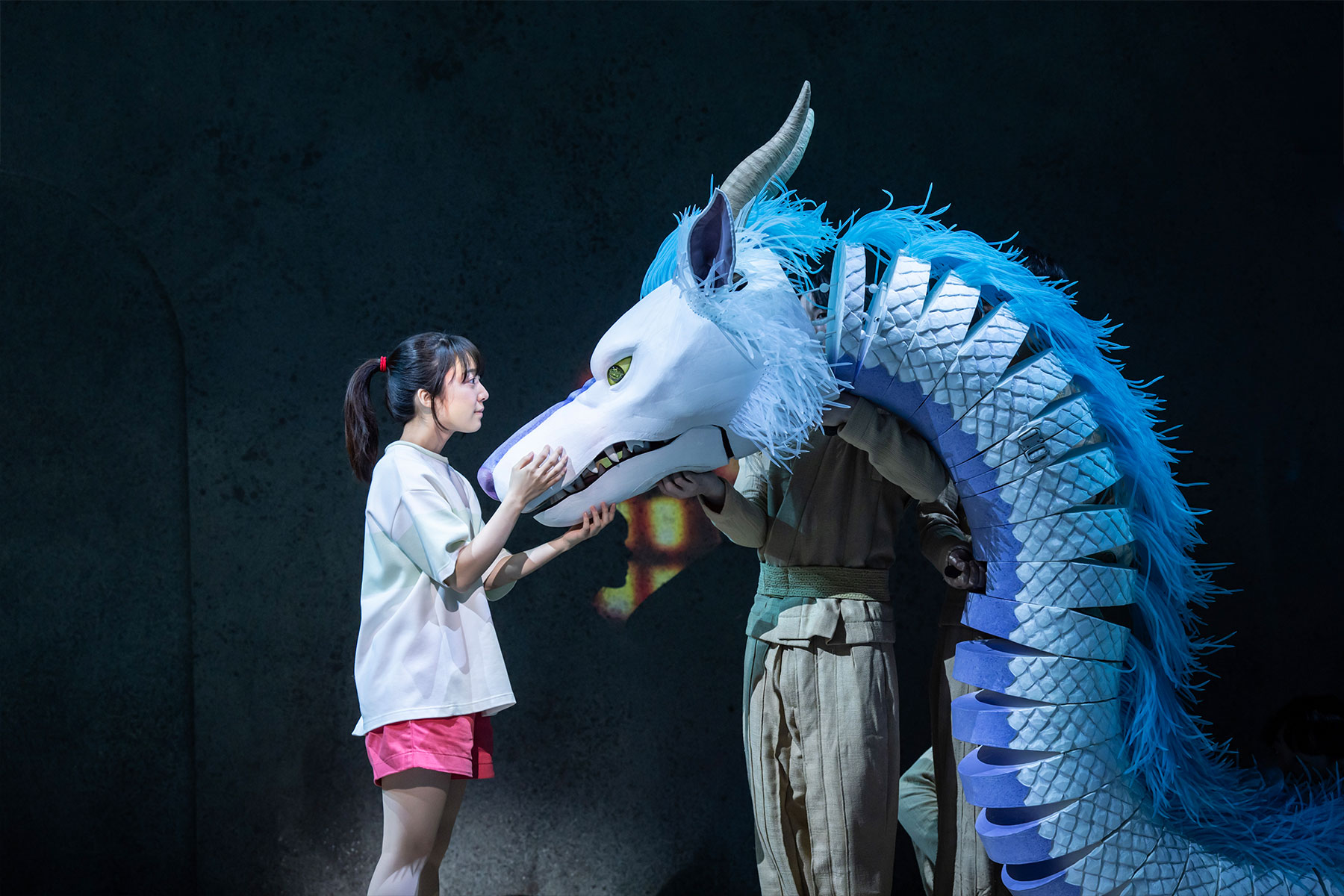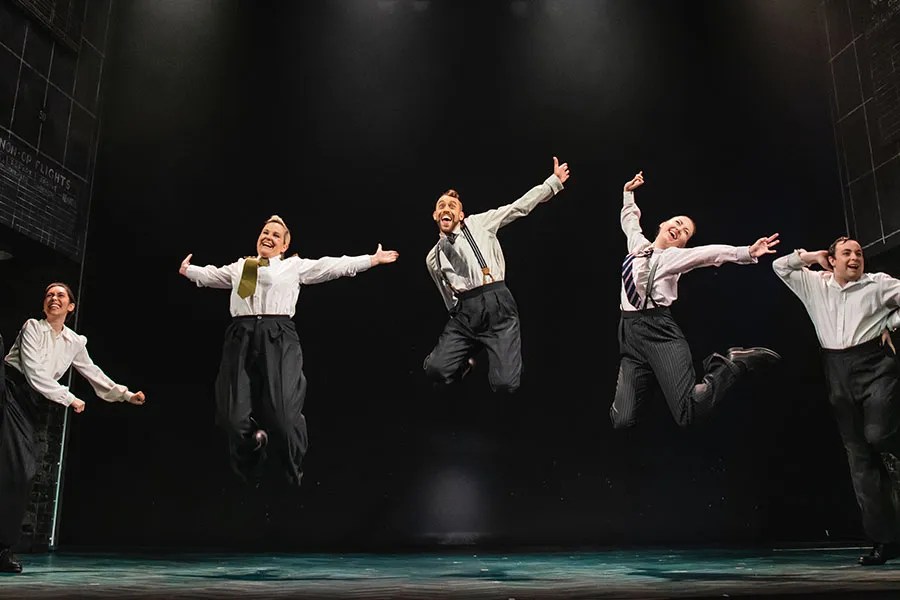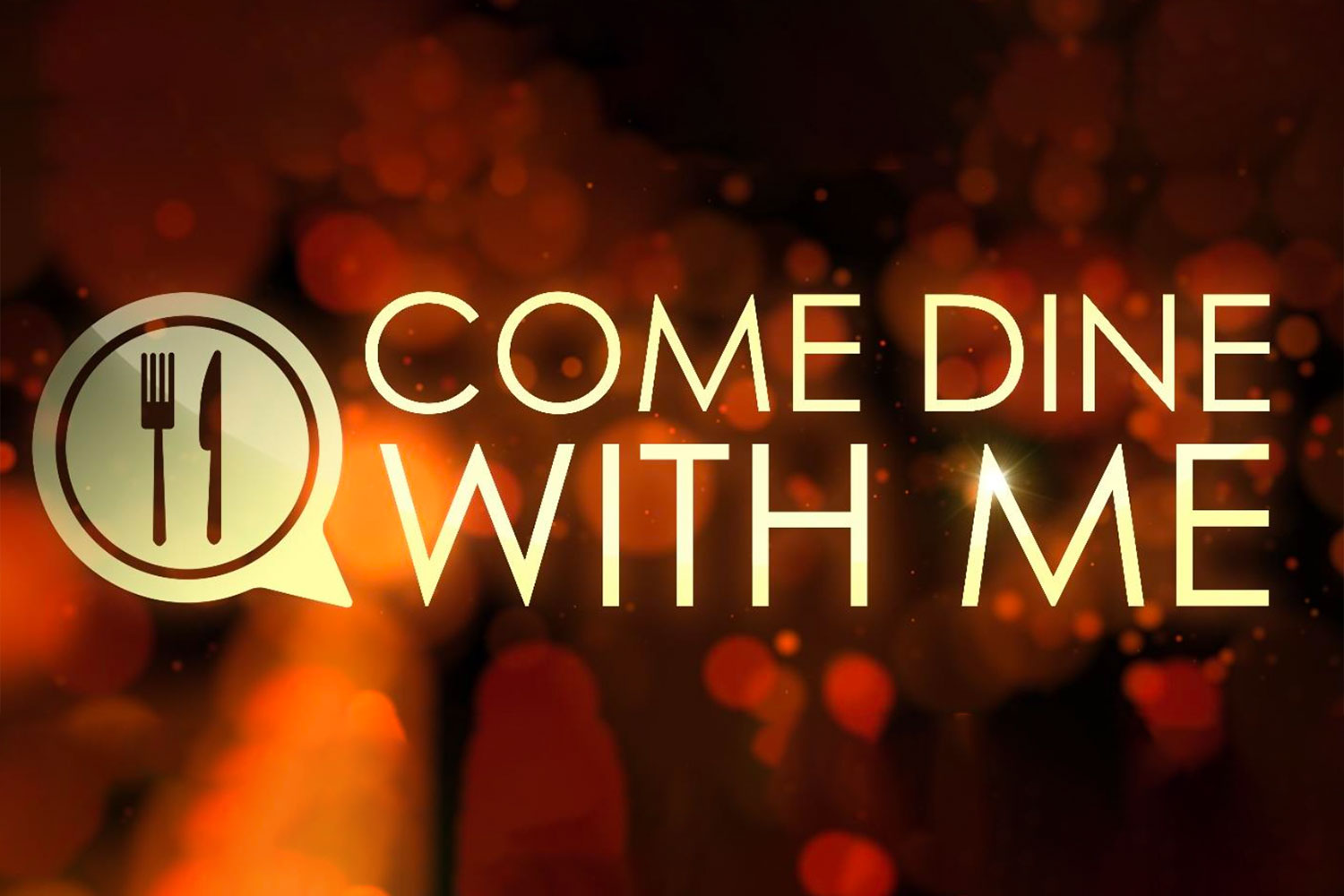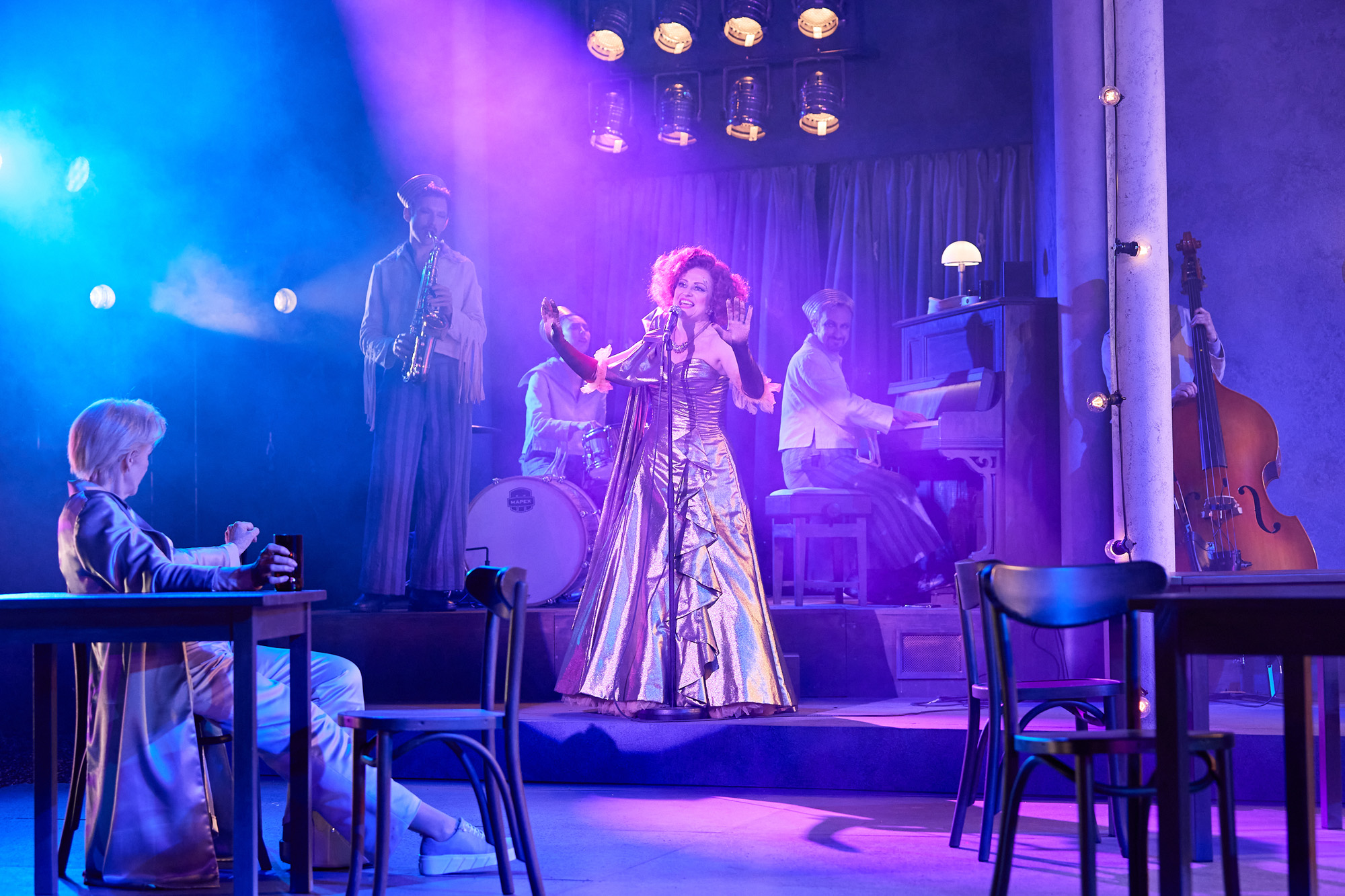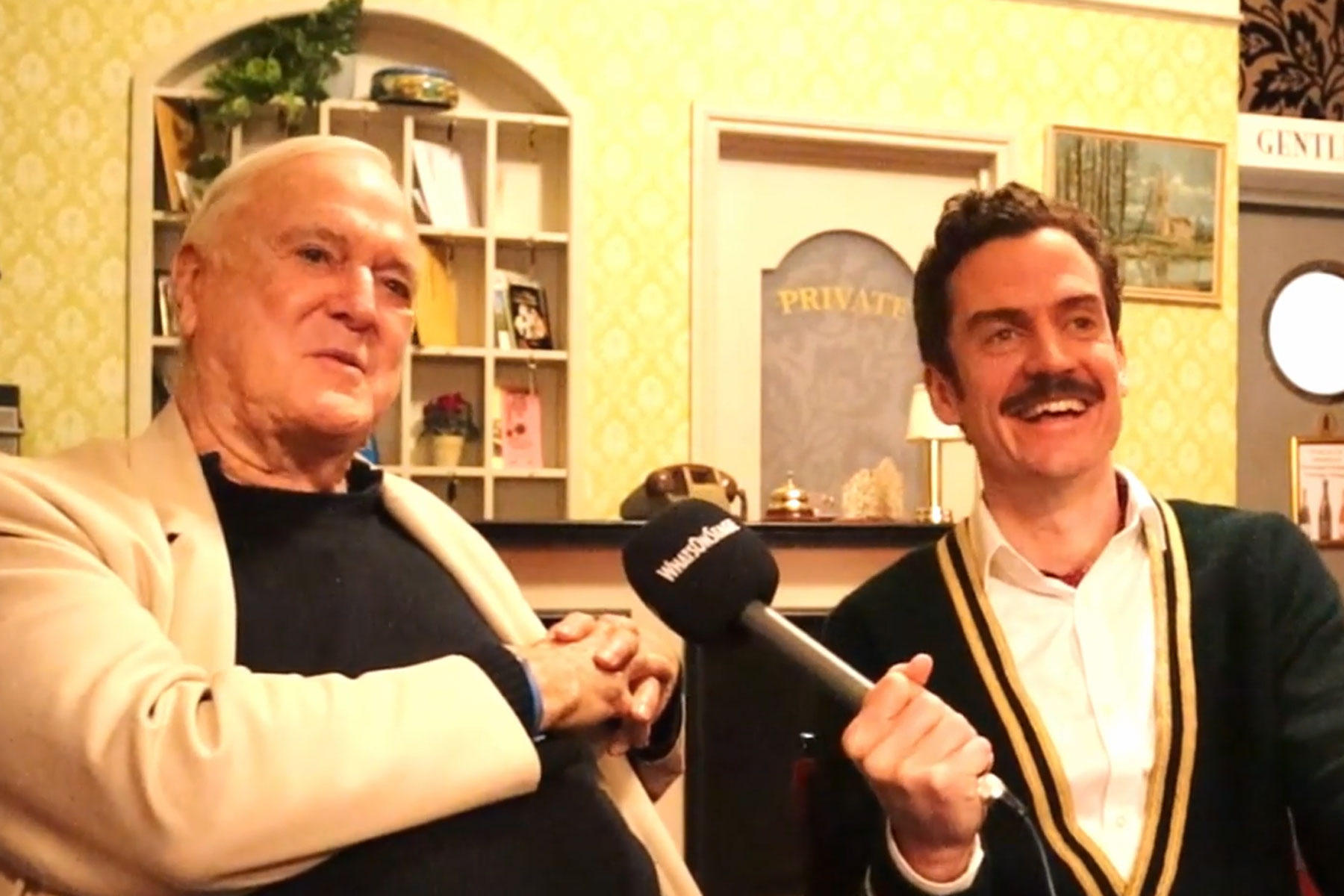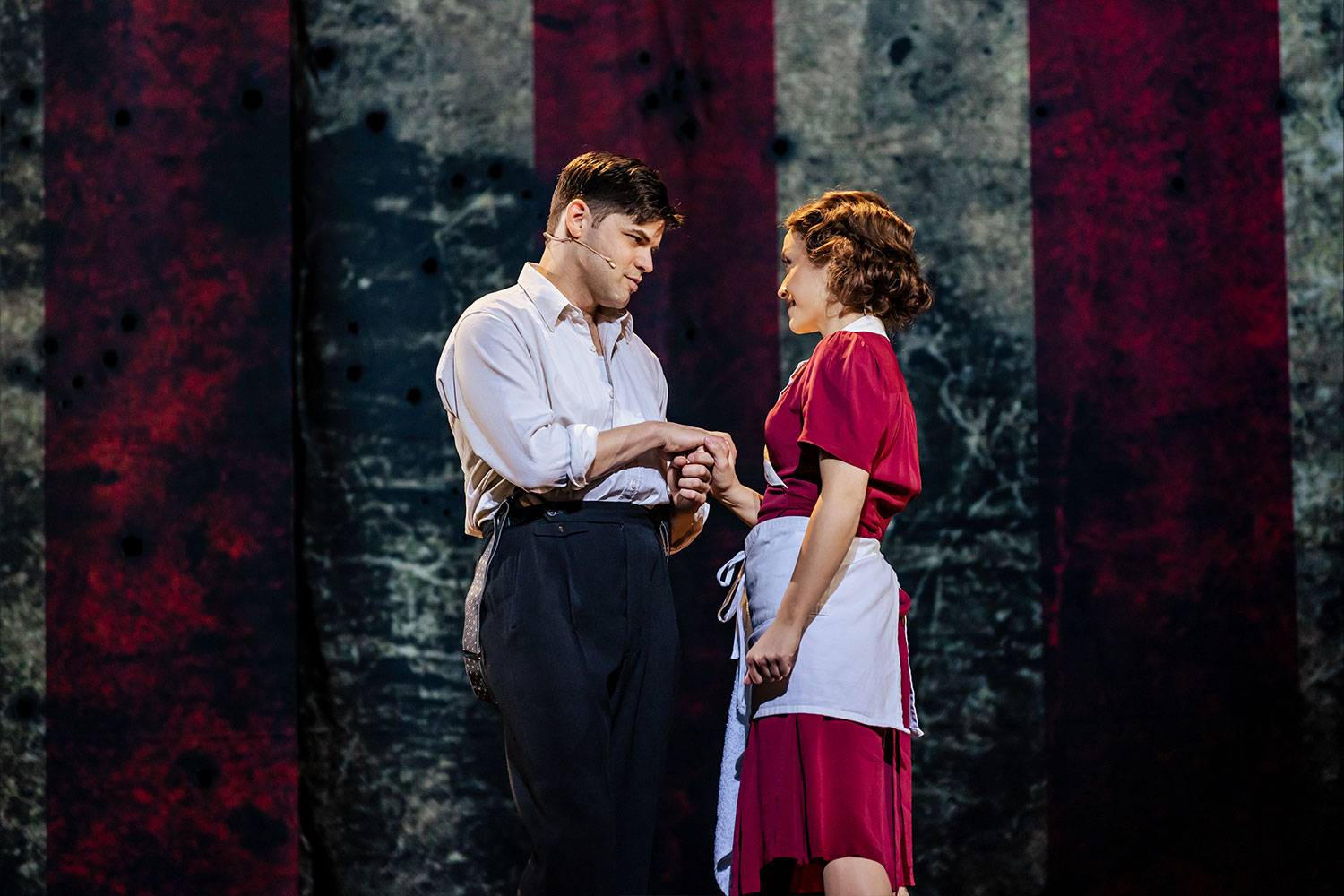Topdog/Underdog
Suzan-Lori Parks‘ 2002 Pulitzer Prize-winning play may take place in the ‘here’ and ‘now’ of a nameless American city, but it could easily be set in Martin McDonagh‘s Ireland, in a small village where eccentricities come as standard and everyone’s family is more than a little fucked up.
Certainly, Parks’ pair of brothers – the topdog and underdog of the title, Lincoln and Booth, so named after the 16th American president and his assassin as their father’s idea of a joke – would feel quite at home in Leenane or Inishmaan, though their addictive 3-card monte street con may not bear such lucrative returns in rural surrounds.
Abandoned by first their father and then their mother, the brothers have been fending for themselves since they were teenagers. Now as world-weary adults, both are living in Booth’s single room in a dilapidated boarding house (Riccardo Hernandez‘s suitably and depressingly grubby design, lit in interrogation-style silhouettes by Scott Zielinski), quarters that prove altogether too claustrophobic for their simmering relations.
Lincoln is working in an arcade, chalking himself up as his namesake honest Abe to let tourists take pops at him, while Booth makes do as a shoplifter, “dreaming and scheming” that he’ll lure his former card sharp sibling back into the big-time trickstering that lost him his best friend and wife.
Mos Def may be the real-life professional rapper, but it’s Jeffrey Wright who, as Lincoln, gets to strum his guitar, croon a bit and launch into poetic riffs that exhibit his vocal dexterity. He also proves himself a superb stage drunk, all casual cruelty and teetering self-control, and a deft hand with the card deck. Not so naturally gifted or lucky, his younger borther comforts himself with delusions about his childhood, his girlfriend Grace and his ‘career’ prospects. Intermittently sweet and edgy, Def’s Booth exposes chinks of heartrending vulnerability, but these give way to much darker tendencies.
The problem for Topdog/Underdog is that these black twists come as no surprise whatsoever. You don’t need to know the characters’ names, see the gun protruding conveniently from Booth’s trousers or witness the Act One play assassinations to realise this modern Cain and Abel scenario will end very badly indeed. And the fact that you know pretty much exactly where you’re going from the start makes the two hours and 15 minutes Parks’ expends in taking you there seem unnecessarily long.
Luckily, George C Wolfe‘s production, first seen at New York’s Public Theater in 2001, tautens where it can and, particularly in Parks’ stretches of streetwise humour, it’s served enormously well by Def and Wright, who achieve a spellbinding on-stage rapport.
– Terri Paddock



